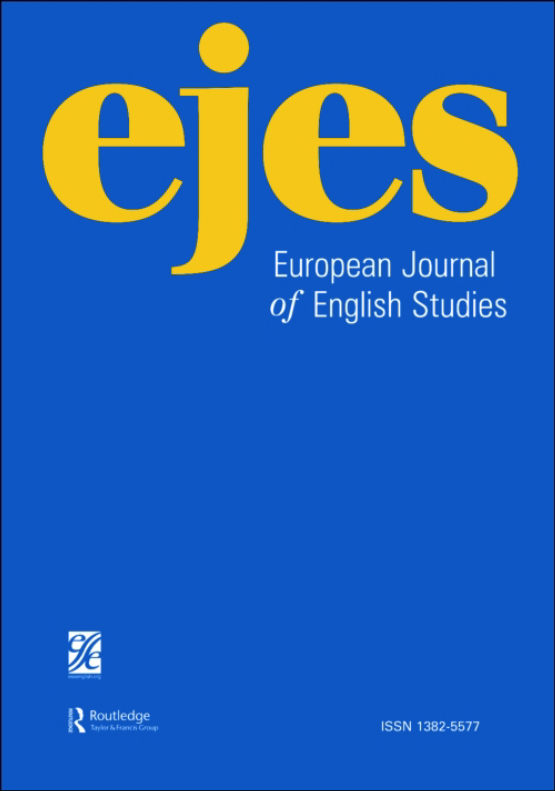Submit a Manuscript to the Journal
European Journal of English Studies
For a Special Issue on
Wasted Lives in Contemporary Fiction: Bodies That Do Not Matter
Abstract deadline
30 November 2023
Manuscript deadline
31 May 2024

Special Issue Editor(s)
Maria Isabel Romero-Ruiz,
University of Málaga, Spain
[email protected]
Simonetta Falchi,
University of Sassari, Italy
[email protected]
Wasted Lives in Contemporary Fiction: Bodies That Do Not Matter
In one of his seminal works, Wasted Lives: Modernity and its Outcasts (2004), Zygmunt Bauman defines the idea of “wasted lives” as a ripple of modernity creating the figure of “the outcast.” According to him, the production of “human waste” – or more precisely, wasted lives, the “superfluous” populations of migrants, refugees, and other outcasts – is an inevitable outcome of modernisation. The concept of wasted lives deconstructs the impact of this transformation. Coping with “human waste” provides a key to comprehending otherwise incomprehensible aspects of our shared life, from the strategies of global dominance to the most intimate human relationships. Contemporary and past societies believe themselves to be paragons of civilisation and progress. Yet a growing population of “undesirable people” has invaded public life and culture and represents a threat to class values. This situation is reflected in numerous literary and visual works created during the last few decades.
On the other hand, stigma has become a prominent indicator of contemporary and historical populations that have been subjected to discrimination for social and political reasons. According to the Oxford English Dictionary, stigma can be defined as “a mark of disgrace or infamy; a sign of severe censure or condemnation, regarded as impressed on a person or thing; a ‘brand.’” In light of this concept, Imogen Tyler reflects on how stigma changes the ways in which people think about themselves and others in Stigma: The Machinery of Inequality (2020): this concept represents an assault on human dignity through its technologies of division and dehumanisation. Compassion, hope, and solidarity are destroyed, since stigma, as a form of power, is embedded in social relations linked to colonialism and patriarchy, as well as to inequalities of class, race, gender, and sexuality written on the body of “the other.” Stigma always happens in historical contexts where violence, discipline, and punishment coalesce to produce devastating effects on people’s health and well-being. Social organisations frequently portray the disenfranchisement and distress of people living in poverty as the result of their poor behaviour, lack of discipline, and shamelessness.
There are many instances of contemporary literature and culture whose aim is to recover the voices of stigmatised people whose lives are considered wasted. Their bodies have stigma inscribed onto them because of their alleged lack of humanity. However, stigma can also be viewed as a mark of resistance in both historical and contemporary societies, and this is reflected in a number of these literary and cultural works that represent an attempt to reconstruct the lives of marginalised people.
We welcome proposals that deal with cultural and literary productions that are concerned with stigma, wasted lives, and bodies that do not matter in the context of past and contemporary societies. Essays can cover a range of approaches and methodologies, including linguistic, stylistic, and philological ones, as well as theoretical-critical and translational elements of contemporary literary texts and their audio-visual re-mediations. Possible topics include, but are not limited to:
- The disposable bodies of the poor, refugees, and migrants as superfluous populations in cultural productions
- The lives of outcasts, criminals, “deviants,” and prostitutes as carriers of stigma in literature and visual culture
- Disabled and sick bodies and the lack of humanity attributed to them in past and contemporary societies
- The role of disease and contagion in the spread of social evils in literary and visual representations of marginalised individuals
- The idea of modernity as a false mirror of civilisation and progress in the face of “undesirable people”
- The portrayal of poverty and fate as resulting from a lack of discipline and shamelessness and the violent stigmatization of populations in contemporary and past contexts
Looking to Publish your Research?
Find out how to publish your research open access with Taylor & Francis Group.
Choose open accessSubmission Instructions
Detailed proposals (up to 1,000 words) for full essays (7,500 words), as well as a short biography (max.100 words) should be sent to both editors by 30 November 2023: Maria Isabel Romero-Ruiz, [email protected] and Simonetta Falchi, [email protected]
EJES operates in a two-stage review process.
- Contributors are invited to submit proposals for essays on the topic in question by 30 November 2023.
- Following review of the proposals by the editorial board panel, informed by external specialists as appropriate, the guest editors will invite the authors of short-listed proposals to submit full-length essays for review by 31 May 2024.
- The full-length essays undergo a second round of review, and a final selection for publication is made. Selected essays are revised and then resubmitted to the guest editors in late 2024 for publication in 2025.
EJES employs Chicago Style (T&F Chicago AD) and British English conventions for spelling. For more information about EJES, see: http://www.essenglish.org/ejes.html and https://www.tandfonline.com/toc/neje20/current